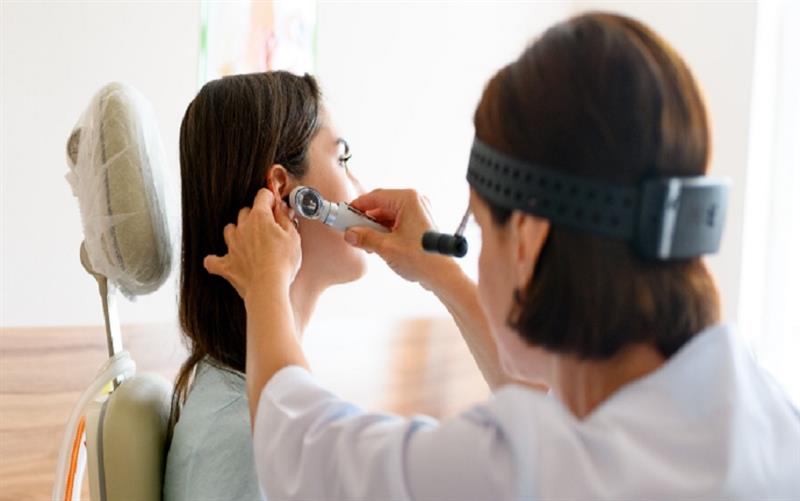
Hearing is a precious sense that allows us to connect with the world around us. It's crucial to understand the significance of hearing and take steps to protect it throughout our lives. In this article, we'll delve into the mechanisms of hearing, common causes of hearing loss, and essential strategies to safeguard your hearing for a lifetime.
Understanding and protecting your hearing for a lifetime is essential for a fulfilling and healthy life. By taking proactive steps to prevent hearing loss and being mindful of your auditory health, you can enjoy the sounds of life to the fullest.
Your hearing is a valuable asset that enriches your life in countless ways. By understanding the causes of hearing loss and adopting protective measures, you can ensure that you enjoy a lifetime of healthy hearing. Take proactive steps to protect your ears, and remember that prevention is key to preserving this precious sense.
The Marvel of Hearing
Hearing is one of our primary senses, enabling us to perceive sounds, communicate effectively, and experience the beauty of music. It's a complex process that involves the ear's intricate anatomy and neural pathways.
How We Hear
To understand how to protect our hearing, it's essential to grasp the hearing process. Sound waves enter the ear canal and travel to the eardrum, causing it to vibrate. These vibrations are then transmitted to the tiny bones in the middle ear, ultimately reaching the cochlea—a snail-shaped, fluid-filled structure.
The Role of Hair Cells
Inside the cochlea, thousands of hair cells are responsible for converting vibrations into electrical signals. These signals are sent to the brain via the auditory nerve, where they are processed, allowing us to perceive sound.
Common Causes of Hearing Loss
Hearing loss can occur for various reasons, and it's not solely an age-related issue. Understanding these causes is vital for prevention.
1. Noise-Induced Hearing Loss
Exposure to loud noises, whether at work or during recreational activities like concerts, can damage hair cells in the inner ear. Over time, repeated exposure can lead to permanent hearing loss.
2. Age-Related Hearing Loss (Presbycusis)
As we age, the structures within the ear naturally deteriorate. This age-related hearing loss, known as presbycusis, usually begins around the age of 60.
3. Ototoxic Medications
Certain medications, both prescription and over-the-counter, can have adverse effects on your hearing. These medications, known as ototoxic drugs, can damage the inner ear's delicate structures.
4. Ear Infections
Ear infections, particularly when left untreated, can cause hearing loss. They can damage the middle ear and affect the movement of the eardrum and the tiny bones in the ear.
5. Traumatic Injury
Head injuries or trauma to the ear can damage the delicate structures of the inner ear and result in hearing loss.
Protecting Your Ears: Practical Tips
Wearing hearing protection, such as earplugs or earmuffs, in noisy environments is crucial. Limiting exposure to loud sounds and taking breaks can also help prevent hearing damage.
Now that we understand the potential risks, let's explore how to protect your ears effectively:
1. Use Hearing Protection
Whenever you're exposed to loud environments, such as concerts, construction sites, or even mowing the lawn, wear appropriate hearing protection. Earplugs or earmuffs can significantly reduce the risk of noise-induced hearing loss.
2. Monitor Volume Levels
When using headphones or earbuds, keep the volume at a safe level. As a rule of thumb, if people around you can hear what you're listening to, it's too loud.
3. Invest in Noise-Canceling Headphones
Noise-canceling headphones can help block out external sounds, allowing you to enjoy music or podcasts at lower, safer volumes.
4. Take Regular Breaks
If your work or leisure activities involve continuous exposure to loud sounds, take regular breaks to give your ears a rest. This simple step can significantly reduce the risk of hearing damage.
5. Maintain Ear Hygiene
Clean your ears gently and regularly to prevent the buildup of earwax, which can affect your hearing.
6. Protect Your Ears During Water Activities
When swimming or participating in water sports, use waterproof earplugs to prevent water from entering the ear canal, which can lead to infections.
7. Be Mindful of Medications
If you're prescribed medications that list hearing loss as a potential side effect, discuss alternatives with your healthcare provider.
8. Wear Head Protection
Engage in activities that carry a risk of head injury, such as biking or skating, with the appropriate headgear to prevent trauma to the ear. Wearing appropriate head protection during activities that carry a risk of head injury, such as sports or construction work, is essential.
9. Prompt Trearment
If you suspect an ear infection, seek medical attention promptly. Early treatment can prevent complications that may lead to hearing loss.
10. Consult Your Doctor
If you're prescribed medications and are concerned about their potential effects on your hearing, consult your healthcare provider. They may be able to recommend alternative medications. Scheduling regular hearing check-ups with an audiologist can help detect age-related hearing loss early. Early intervention can significantly improve your quality of life.
It's ideal to keep yourself as educated with your hearing aids and a new breakthrough in the technology. Ask your query via Book an Appointment today. For more information visit https://hearing.careinc.ca or you can call us today at (403)605-6300